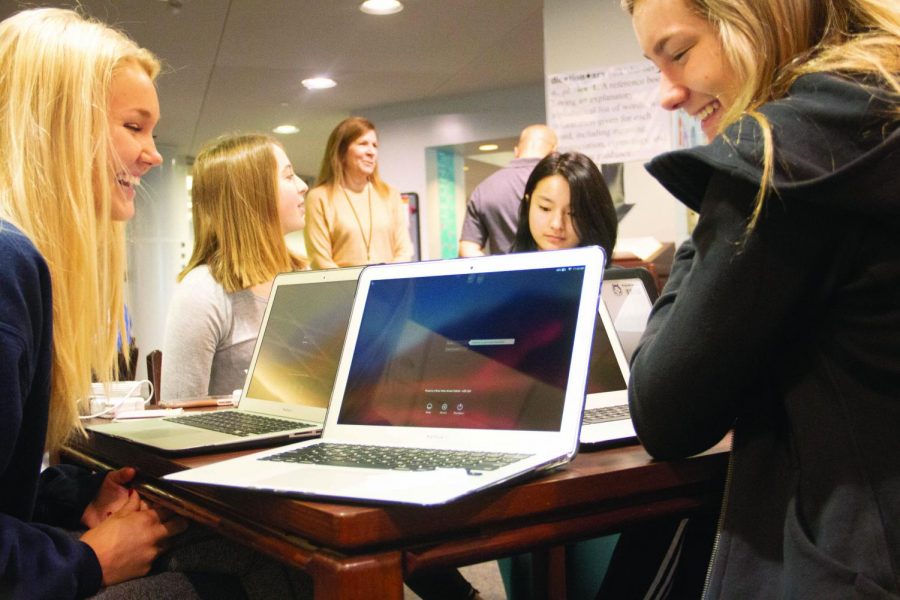Students and staff face concern with the Wi-Fi
With the implementation of laptops into BVNW’s school system, concerns of the quality of Wi-Fi arise between staff and students.
February 17, 2019
During Macbook distribution, an issue with the district-wide network caused a disruption school-wide with Wi-Fi connection, associate principal Tyler Alexander said. As part of Blue Valley’s One-to-Learner laptop initiative, all high school students received a new Macbook Air, Feb. 4.
With no access to Wi-Fi Feb. 4, teachers and students found it difficult to continue on with their classes without internet access in classrooms. Sophomore Ian Kruse is one of those students. He said he relies on the Wi-Fi for various school-related activities, such as completing homework and studying. He frequently loses connection when connected to the Wi-Fi on his phone, Krause said.
“A lot of the time when I’m connected to the schools Wi-Fi, I will be trying to do something on my phone and it will either disconnect me from the Wi-Fi, or it will be really slow,” Kruse said. “The main problem with it, is that it’s too inconsistent.”
However, according to Blue Valley Chief Information Officer Brian Daley, the Wi-Fi is not the root of the connectivity problem, but instead Blue Valley’s Bring Your Own Device (BYOD) program has been one of two main problems. BYOD allows students to bring their own devices to school, including cell phones.
“WiFi has never truly been the problem,” Daley said. “We didn’t do a good job of implementing BYOD several years ago, which actually caused a lot of Wi-Fi problems. What you have is all different types of devices that may have their own viruses on them that can cause even more problems with them getting into the Wi-Fi.”
According to Daley, another problem is the older technology, such as the PC carts. These carts do not pair well with Blue Valley’s new approach to digital learning and instruction that is required of students, according to Daley.
“The second problem was the devices that students were using did not marry well with all the new digital learning and instruction that we were requiring of students because those laptops require a lot of overhead,” Daley said.
As BVNW students got Macbooks Feb. 4 as part of a One-to-Learner laptop initiative, Kruse said he expects the Wi-Fi to get even slower.
“The Wi-Fi will definitely suffer from the Macbooks,” Kruse said. “When you add in the Macs, you’ll be adding in 1,600 new devices to slow down the wifi, add in their phones and it’ll slow it down for sure.”
However, Northwest technology specialist Nicholas Deffer said the one-to-one initiative will actually improve the Wi-Fi.
“Since we’re really looking at only supporting one platform with everybody being on Mac we don’t have to transport the PC side and the Mac side,” Deffer said. “So by streamlining it everybody is trying to connect with the same type of device, a device that’s already been authenticated with the district, so we should see a whole lot better kind of internet usage.”
According to Kruse, the Macbooks will come with more positives than negatives.
“I think the Macbooks will improve the learning experience of the whole school by giving us a better blended learning experience, so It’ll be worth the risk,” Kruse said.



